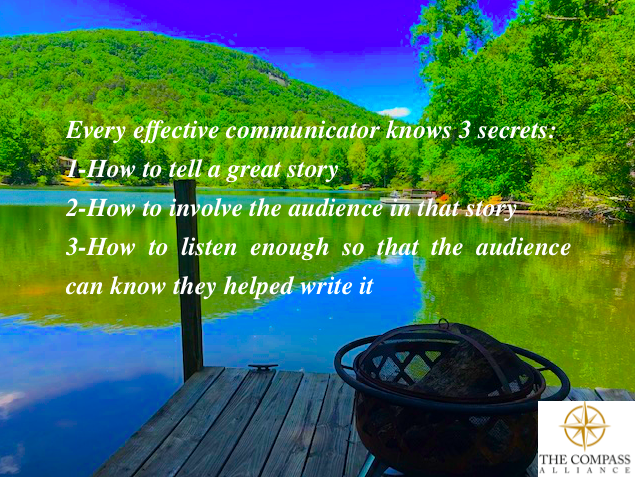
07 Jul Can Anybody Hear Me?
2300 plus years ago Greek philosopher Aristotle coined his Three Tenets of Persuasion – suggesting that ethos (ethics and credibility), logos (logic), and pathos (emotion) were the drivers that ultimately led to our ability to influence others.
The years since have offered nothing to refute that hypothesis.
Invest the time to study any great communicator and you’ll see the same points of commonality:
- He or she can tell a compelling story that engages their audience
- They find a way actively involve their audience in the story
- They ask the kinds of questions that make sure the audience does more than passively listen; they become a part of the narrative
In my formative years I had occasion to enjoy an audience with a relatively high ranking executive with my company – impressive title, long list of credentials, and absolutely NO followers.
How could this be, I asked myself?
This person was brilliant – it made no sense.
At the end of that first morning I had my answer.
Technically proficient – cognitively sound – and totally devoid of any skills that allowed them to connect with others. It was as if a text book had come to life – but without the pictures and with no way to close it.
Audience members didn’t just glaze over. Some lost the will to live.
And this is what I learned – intelligence means little if you can’t make it meaningful. Making it meaningful involves a lot more than a recitation of facts.
Rudyard Kipling once said, “If history were told in the form of stories it would never be forgotten.”
The same holds true for meetings, presentations, business reviews, webcasts, 1:1’s – and life in general.
In my book, The Compass Solution, I devote a section to the often misunderstood topic of Communication – maybe it’s because I learned early that the words of George Bernard Shaw were VERY real.
“The single biggest problem in communication is the illusion that it has taken place.”


Sorry, the comment form is closed at this time.